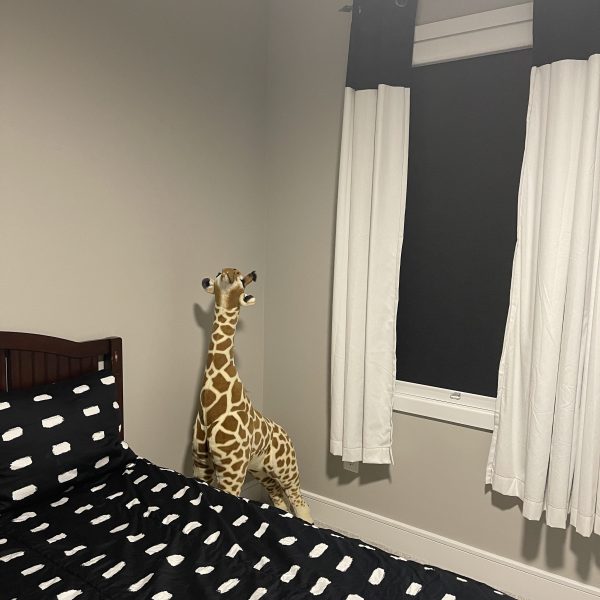
As I mentioned the other day on social media, I feel that so much of parenthood is stressing ourselves out to do something because society tells us to do so. Don’t let others tell you how to parent your kids, YOU know them best! You know when it’s right to stop breastfeeding, to introduce solid foods, and to potty train. What I hope I can provide you here is the information you need to make an informed parenting decision. I want that phrase to go viral because it is so important to make decisions that are right for your family based on good. solid. information.
So when is a child physically ready to night-train? That is realllyyy varied. Though most children are toilet trained between 2 and 4 years of age, some children may not be able to stay dry at night until they are older. Children develop at their own rate. For example, 20% of 5-year-olds, 10% of 7-year-olds, and 5% of 10-year-olds may still wet the bed (Source: Bedwetting Copyright © 2006 American Academy of Pediatrics, Updated 4/2013). Bladder control is a complex process that involves the coordinated action of the muscles, nerves, spinal cord and brain.
So how do you know when to night-train? I highly recommend being really comfortable with the potty during the day first and not doing cold turkey with both. Of course, this is up to you, but typically it will be less overwhelming for everyone involved to get the days figured out first. Potty training takes a lot of brain effort for both the child and parents. You both need good sleep to be able to remain calm and learn this important new life task. One thing to look at prior to night training is are they dry when they wake in the morning? If not then you may want to wait a little longer. In the meantime though make sure you are adding these things to your child’s routine:
- Establishing a bedtime routine that includes going to the bathroom before bed
- Limiting beverages in the evening (nothing more than a small sip within an hour before bedtime)
- Praising when they are dry in the morning and let your child know it’s not his or her fault if they are wet and that most children outgrow bedwetting.
If bedwetting persists beyond the age of 6 or 7, you should discuss with your child’s pediatrician to discuss evaluations. Sometimes it could be something medical causing them to have bedwetting ( one example is obstructive sleep apnea), especially if they had been dry for a while and then started to wet the bed again.
I hope this was helpful information as you navigate parenting your growing child! Until next week….


